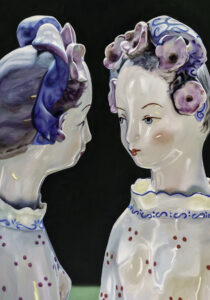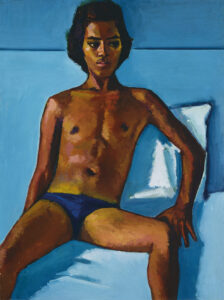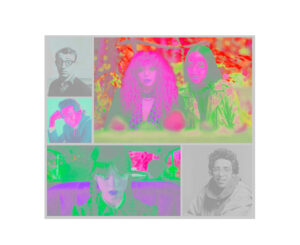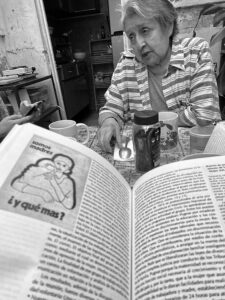A Celebration of Video Art and Social Transformation
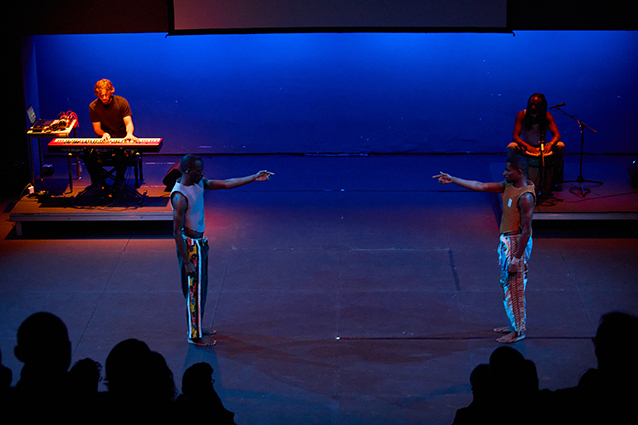
Thomas Radin Institut del Teatre.
From November 11 to 23, Barcelona became the global epicenter of video art and artists cinema with the 22nd edition of Loop Barcelona, an internationally renowned platform dedicated to exploring the creative possibilities of the moving image. Since its inception in 2003, the festival has been at the forefront of innovation, fostering a vibrant dialogue between artists, curators, collectors, and audiences. This year’s edition, themed “A Subtle Shake,” invited participants to reflect on the transformative power of art in shaping society. Through its three core programs—Loop Festival, Loop Fair, and Loop Symposium—the event offered a dynamic combination of exhibitions, screenings, and discussions, connecting local creativity with global perspectives.
The festival emphasized the urgency of addressing contemporary issues, such as identity, ecology, and technology, through video art. With over 150 participating artists and collaborations spanning cultural institutions, galleries, and educational platforms, Loop Barcelona 2024 exemplified the transformative potential of art. Highlights included powerful feminist narratives, interdisciplinary explorations, and works challenging systemic power structures.
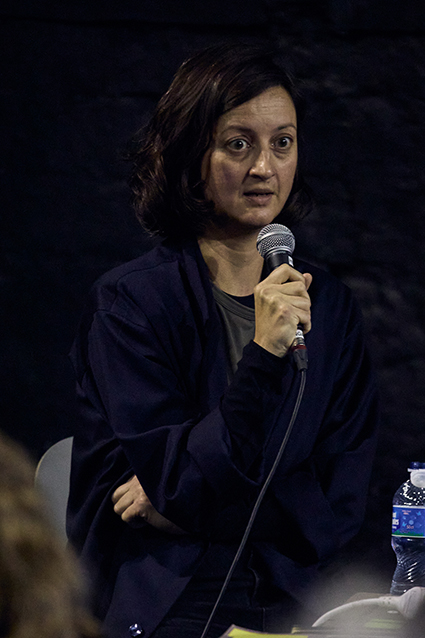

Metahaven’s “The Feeling Sonnets – Hangar – Fabra I Coats, Núria Güell
At the heart of this year’s feminist programming was Núria Güell’s “Morir d’amor”, exhibited at Fabra I Coats. Winner of the 2023 Video Creation Award, Güell’s work interrogates how cultural narratives around love shape human behavior and power dynamics. Her feminist practice—known for critiquing institutions and societal privileges—encouraged viewers to reflect on how love intersects with morality and control, aligning with the festival’s broader emphasis on care and resistance.
Similarly, Camila Cañeque’s “Infinita / Inacabada”, presented at La Capella, explored the politics of exhaustion. Through themes of vulnerability and resilience, Cañeque offered a poignant critique of societal pressures, particularly those impacting marginalized identities. Her work invited audiences to consider new forms of resistance against patriarchal structures. Feminist reinterpretations of cultural history also featured prominently in Maria Alcaide’s “Ariadna mai va ser la nostra deessa” at Casa Elizalde. This performative exploration reexamined myths of femininity and power, creating space for alternative narratives through a feminist lens.
Loop Barcelona 2024’s commitment to gendered perspectives was exemplified in Thomas Radin’s “The Myth of Trinity II.” This performance combined dance, film, and sculpture to explore migration, spirituality, and the complexities of black identity. Radin’s work, deeply rooted in his Guadeloupean heritage, highlighted the intersection of systemic inequalities and cultural resilience. Radin’s performance became a festival highlight by celebrating identity’s fluidity and collective memory’s power. Metahaven’s “The Feeling Sonnets (Transitional Object),” presented at Hangar, used video art to explore care, geopolitics, and the nuances of human connection. Their interdisciplinary approach underscored the importance of rethinking global systems through relational and empathetic perspectives, aligning with feminist critiques of power and control.
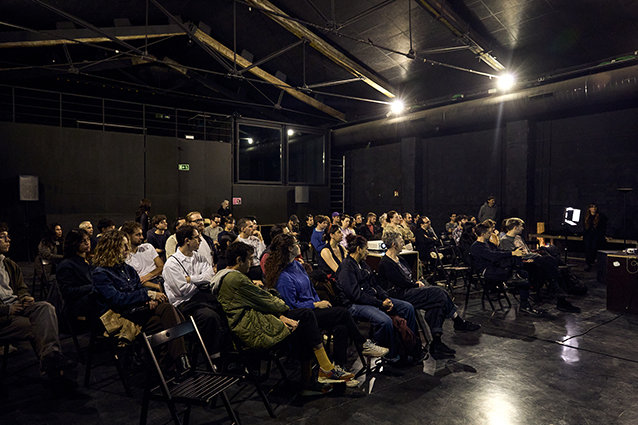
Hangar
The ecological dimension of this year’s programming brought a feminist lens to themes of sustainability and interconnectedness. Laure Prouvost’s “Octopus Head Woman” at Museu Picasso transformed ordinary objects into meditations on humanity’s relationship with the natural world. By challenging conventional narratives and centering care and wonder, Prouvost’s work resonated with feminist eco-critical approaches
At CCCB, Valentina Alvarado Matos’s “Scraping the Leaf and the Voice” integrated natural elements and soundscapes to evoke cultural memory and environmental stewardship. Her work, a poetic meditation on human and ecological entanglements, emphasized the importance of preserving cultural and natural heritage. Meanwhile, John Menick’s “Autoextinction and The Self-Moving Image” at CASA SEAT critically examined the implications of artificial intelligence on identity and autonomy. While not explicitly feminist, Menick’s work engaged with questions central to feminist critiques of technology, including the ethics of representation and agency.
Loop Barcelona 2024’s feminist, gender and ecological focus was strengthened by its collaborative approach. The City Screen program featured 30 local galleries that amplify diverse voices, creating connections between local and global narratives. Like those led by Filipa Ramos during the Loop Symposium, curated discussions brought together artists, academics, and collectors to explore how video art can confront systemic inequities and foster meaningful change.
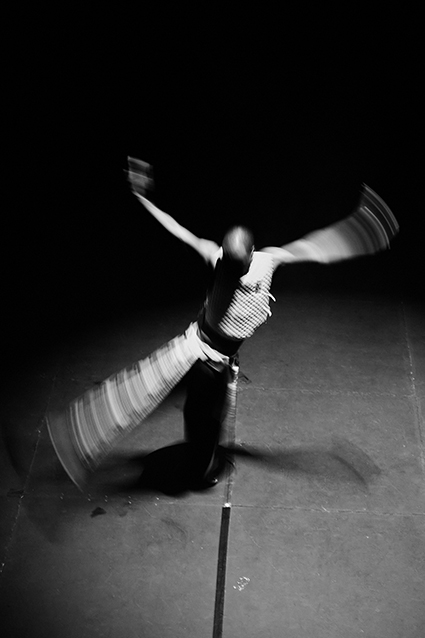
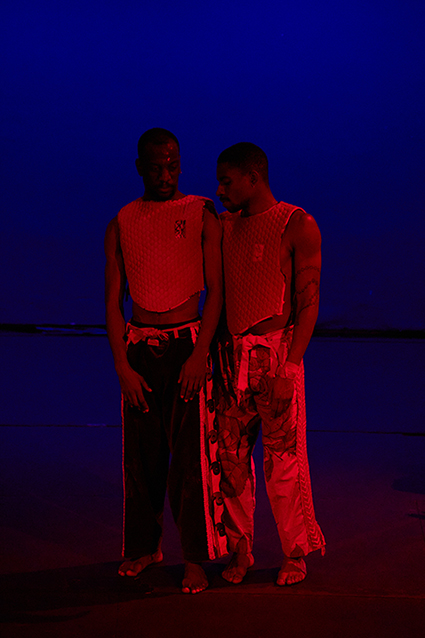
Thomias Radin Institut del Teatre
These collaborative networks reflect Loop’s ethos: creating spaces for critical engagement and mutual learning. By showcasing works that challenge dominant paradigms and celebrate alternative ways of thinking, the festival reaffirmed its commitment to fostering an inclusive and transformative cultural dialogue.
Loop Barcelona 2024 was more than a showcase of artistic excellence—it was a call to action. By elevating feminist, gendered, and ecological narratives, the festival highlighted the power of art to inspire reflection and drive societal transformation. As the moving image continues to evolve, Loop remains a pivotal force in shaping its future and addressing the complexities of our shared world.
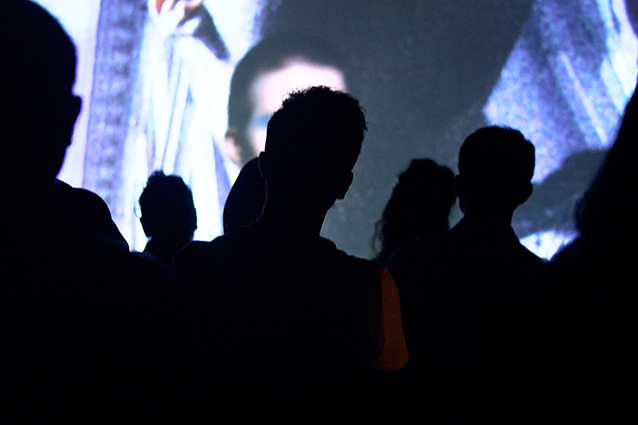
Photos by Nereis Ferrer, Courtesy of Loop Barcelona
